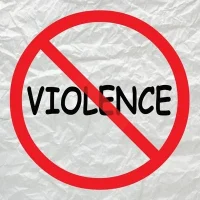Deadline: 27-Aug-2024
UN Women has issued a call for proposals to provide training on gender-based violence (GBV) for municipal officers and service providers.
Despite legislative improvements, entrenched gender stereotypes and prejudice perpetuate the stigma associated with GBV and faced by GBV survivors. This stigma (including from service providers) often prevents GBV survivors to report cases. Furthermore, recent studies have shown that female survivors often lack awareness of the services available to them. The combination of these two aspects of GBV in Kosovo makes breaking the cycle of violence challenging.
To address these challenges, this project will aim to raise awareness, challenge stereotypes and stigma, and promote the services available to survivors. The project will identify gaps that could then be addressed through recommendations on implementation of existing policies.
The multifaceted approach is designed not only to open discussion on existing societal norms but also to contribute to bringing about measurable differences to the lives of survivors. The empowerment of survivors will allow those that have been ostracised to reintegrate into society. The long term aim of this project is to contribute to reduce GBV across Kosovo.
Although there has been some progress in applying some areas of the Istanbul Convention, very little work has been done to address the stigma that GBV survivors face, nor to raise awareness of the services available to survivors, including on access to justice. Instead, the focus has been on encouraging survivors to report cases to the police, and then with little attention to follow-up support.
Therefore, the project objectives are:
- Educate and change societal perceptions of GBV to contribute to the reduction of stigma that GBV survivors face and advocate for an end to violence against women and girls;
- Support women and girls survivors, including increasing their awareness of their rights, and what services, including judicial, are available to them.
This project will address stigma-based myths and prejudices amongst those working in services that support survivors, including health-workers, police, prosecutors and judges through campaigns (with media coverage) and other educational activities, using gender transformative approach tools. Campaigns will also target youth and identify potential ‘Anti-GBV Ambassadors’. These activities will contribute to making GBV an acceptable topic for public discourse and contribute to raising awareness and challenging GBV more visibly and therefore contributing to survivors feeling more empowered to report cases to the police and support services.
This project will further contribute to empower survivors of GBV through addressing the lack of information survivors have on what services are available to them. Through a targeted information campaign, capacity building of service providers, cooperating with the Kosovan authorities and civil society, accessibility to services will be improved and enable survivors to make informed decisions. The reduction of stigma will also contribute to this outcome through empowering women to access support services.
In this regard, the Responsible Party is expected to undertake activities under the output: Municipal Offices and service providers (health workers, social workers, police officers, judges, prosecutors) trained on GBV best practice in line with the new Law on DV.
Funding Information
- The budget range for this proposal should be equivalent to maximum 45.000,00 Euro.
Timeframe
- Start date and end date for completion of required services/results:
- The project is expected to be carried out within the months of September 2024 and 15 March 2025.
Required Services/Results
- With a view to achieving output: Municipal Offices and service providers (health workers, social workers, police officers, judges, prosecutors) trained on GBV best practice in line with the new Law on DV, it is expected that the selected CSO will inter alia:
- Provide a detailed description of activities on:
- Trainings for service providers, including health workers, social workers, police officers, judges and prosecutors covering the prevention and detection of domestic violence in four selected municipalities (Pristina, Dragash, Gjakova and Gjilan) in line with the new law on DV;
- Collaboration with Task Forces established under Output 1.2 of the project, with focus on fighting GBV stigma and in accordance with the National Strategy on Protection against Domestic Violence and Violence against Women (2022 – 2026) by reviewing and monitoring its implementation and its advocating strategies;
- Following identification of specific training requirements for each group of service providers, tailored training programs to be developed covering various topics such as for instance, trauma-informed care, victim sensitivity, and effective referral mechanisms. These training sessions will utilize various formats, including workshops, seminars, exchange of best practices etc.
- Provide a detailed description of activities on:
- Furthermore, the following should be considered when developing the workplan:
- The responsible party should collaborate with local authorities;
- The planned activities should take into consideration and address the needs of women from disadvantaged communities.
- Prior the implementation of the project, the responsible party should cooperate with local authorities to deliver above-mentioned services in respective municipalities.
- All knowledge products and communications materials that would be produced under this agreement must acknowledge the support of and seek the approval of UN Women. Furthermore, they should be in line with the UK Government communication and visibility tools and guidelines.
Competencies
- Technical/functional competencies required
- Proven experience in promoting and strengthening the human rights of women and to prevent GBV and VAW;
- Proven experience in designing and conducting comprehensive training programs for diverse groups;
- Experience in developing tailored training materials and programs specific to the needs of each group of service providers;
- Established organizational presence with a minimum of 10 years of registration;
- Proponent must demonstrate experience in implementing programmes on gender equality and empowerment of women through an organizational resume of past implementing experience of related projects and areas of expertise.
- Focusing on the empowerment of women and using a gender specific approach is required;
- Communication and visibility in line with the programme communication strategy, which will be defined at the stage of project proposal finalization. Once the communication strategy/plan is approved by the UN Women, the major steps of this plan are to be coordinated UN Women to ensure greater impact.
- Priority placed on sustainability of results.
- Other competencies, which while not required, can be an asset for the performance of services
- Human rights-based and gender-responsive approaches that place first priority on promoting, protecting and fulfilling the human rights of women as well as strengthening institutional capacities of service providers at the local level to eliminate all forms of discrimination against women;
- Holistic responses that address women and girls’ inter-related rights and needs, including safety, access to health, education and economic security;
- Coordination and multi-sectorial partnerships, including among government organizations, nongovernmental organizations, women’s and other civil society groups;
- Commitment to knowledge sharing, by documenting, evaluating and disseminating results, and working with UN Women staff in the process;
- Other competencies, which while not required, can be an asset for the performance of services
- Transformation of inequitable gender norms and power disparities between women and men, and empowerment of women and girls to thrive as equals;
- Previous experience with UN especially handling projects and initiatives of a similar nature.
For more information, visit UN Women.









































